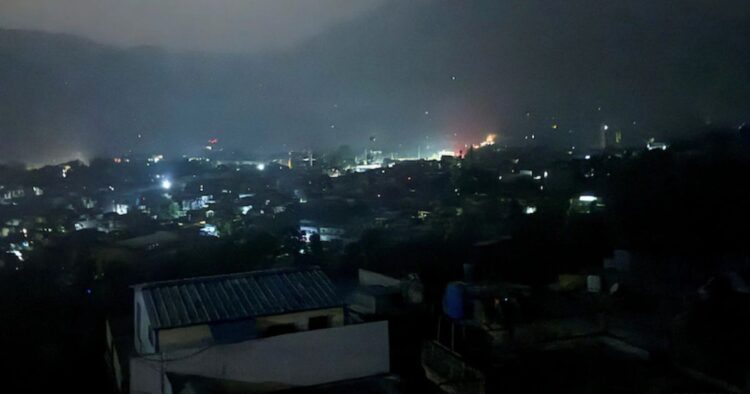India has given a strong warning: if any more terror attacks come from Pakistan, it will be seen as an act of war, and India will respond accordingly. This warning comes following three nights of drone and missile attacks by Pakistan on Indian military bases and civilian areas in northern India. Most of these attacks were stopped by India’s strong air defence systems.
Why the Warning Now?
Two weeks ago, terrorists linked to Pakistan killed 26 Indian tourists in Pahalgam, Jammu and Kashmir. India carried out precise missile strikes on terrorist camps in Pakistan and Pakistan-Occupied Jammu and Kashmir (PoJK). Pakistan increased the conflict by sending drones to attack civilians in India, instead of stopping terror activities.
Pakistan Army’s Support To Terrorists
During India’s missile strikes (part of Operation Sindoor) on May 7, the Pakistan Army defended the terrorist camps that were targeted. This showed their support for terrorists even more clearly.
As per Indian military and intelligence sources: Pakistan’s Army and ISI (spy agency) are helping terrorists with money, training, weapons, and safe places to hide. Terror camps are located close to Pakistani military bases, which shows they are being protected on purpose. Terrorists are even using army facilities and moving freely in restricted areas.
India says Pakistan is not stopping these terrorists, which means it is actively supporting them.
What Will Be Considered an ‘Act of War’?
India has listed several acts that will be treated as a declaration of war if carried out by Pakistan or terrorists backed by it:
Bomb blasts
Firing on Indian areas
Hijacking of airplanes
Cyberattacks
Use of biological or chemical weapons
Attacks on government buildings or military camps
Even if carried out by non-government actors (terror groups), if these are supported or encouraged by any country like Pakistan, India will treat it as an attack by that country.
India’s Global Message
India wants the world to see how Pakistan’s army claims to be responsible in public, but secretly supports terrorism. India is working to destroy terror camps and also expose Pakistan’s double standards at the international level.
Prime Minister Narendra Modi held a high-level meeting with top security and defence officials to review the situation on the western border. This happened just hours following the Indian Air Force (IAF) struck eight military targets in Pakistan.
Who Attended the Meeting?
Defence Minister Rajnath Singh
National Security Adviser Ajit Doval
Chief of Defence Staff General Anil Chauhan
Chiefs of the Indian Army, Navy, and Air Force
Earlier, General Chauhan had also updated Rajnath Singh about the security situation.
Why Did India Strike Back?
The IAF strikes were a response to Pakistan’s attacks on Indian military bases and civilian areas. Pakistan had used:
Fighter jets
Armed drones (UCAVs)
Missiles
India responded with precision airstrikes, meaning only military targets were hit to avoid civilian harm.
Targets Hit by India
The Indian Air Force hit eight locations in Pakistan, including:
Radar systems
Weapon storage areas (ammunition dumps)
Command and control centres
Technical military infrastructure
These strikes were carried out in places like Rafiqui, Murid, Chaklala, Rahim Yar Khan, Sukkur, Chunian, Pasrur, and Sialkot.
Part of Operation Sindoor
These recent actions are part of Operation Sindoor, India’s ongoing military operation that started after the Pahalgam terror attack on April 22, where 26 Indian tourists were killed by Pakistan-linked terrorists. Saturday’s events were the most intense fighting between the two countries since India launched Operation Sindoor on May 7.















Comments